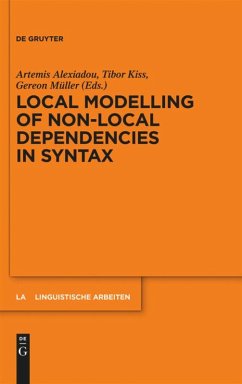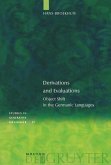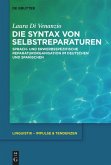Syntactic dependencies are often non-local: They can involve two positions in a syntactic structure whose correspondence cannot be captured by invoking concepts like minimal clause or predicate/argument structure. Relevant phenomena include long-distance movement, long-distance reflexivization, long-distance agreement, control, non-local deletion, long-distance case assignment, consecutio temporum, extended scope of negation, and semantic binding of pronouns. A recurring strategy pursued in many contemporary syntactic theories is to model cases of non-local dependencies in a strictly local way, by successively passing on the relevant information in small domains of syntactic structures.
The present volume brings together eighteen articles that investigate non-local dependencies in movement, agreement, binding, scope, and deletion constructions from different theoretical backgrounds (among them versions of the Minimalist Program, HPSG, and Categorial Grammar), and based on evidence from a variety of typologically distinct languages. This way, advantages and disadvantages of local treatments of non-local dependencies become evident. Furthermore, it turns out that local analyses of non-local phenomena developed in different syntactic theories (spanning the derivational/declarative divide) often may not only share identical research questions but also rely on identical research strategies.
The present volume brings together eighteen articles that investigate non-local dependencies in movement, agreement, binding, scope, and deletion constructions from different theoretical backgrounds (among them versions of the Minimalist Program, HPSG, and Categorial Grammar), and based on evidence from a variety of typologically distinct languages. This way, advantages and disadvantages of local treatments of non-local dependencies become evident. Furthermore, it turns out that local analyses of non-local phenomena developed in different syntactic theories (spanning the derivational/declarative divide) often may not only share identical research questions but also rely on identical research strategies.








